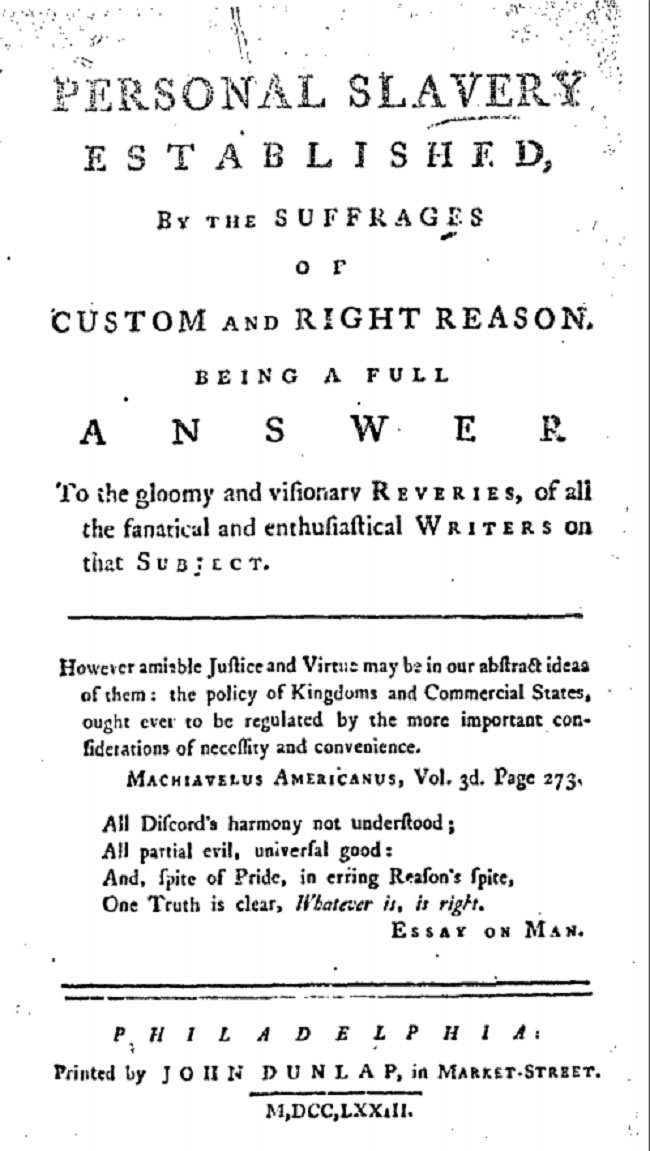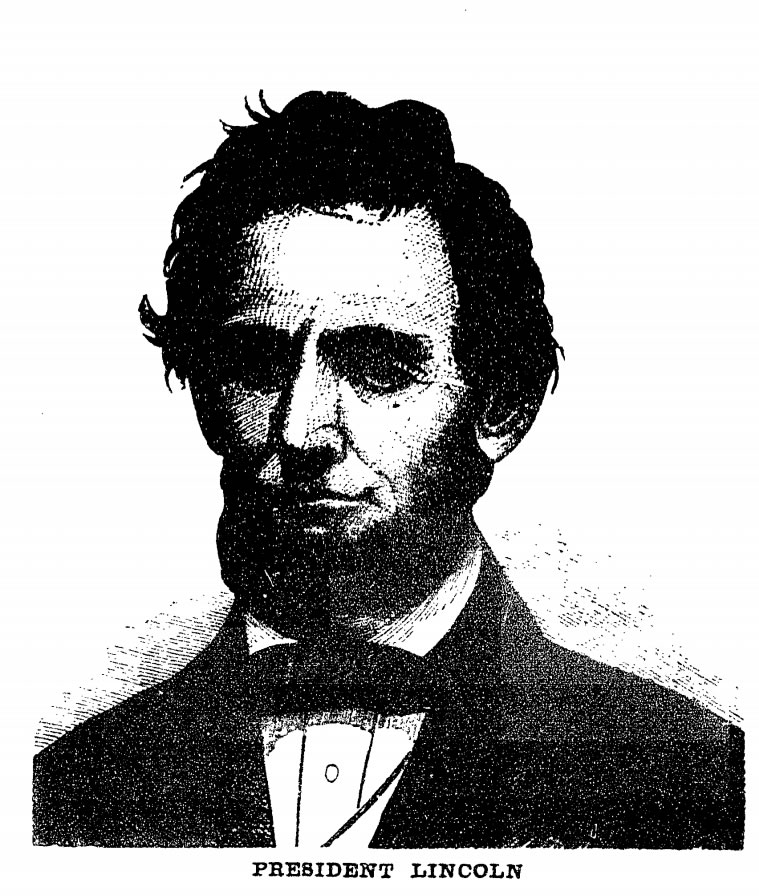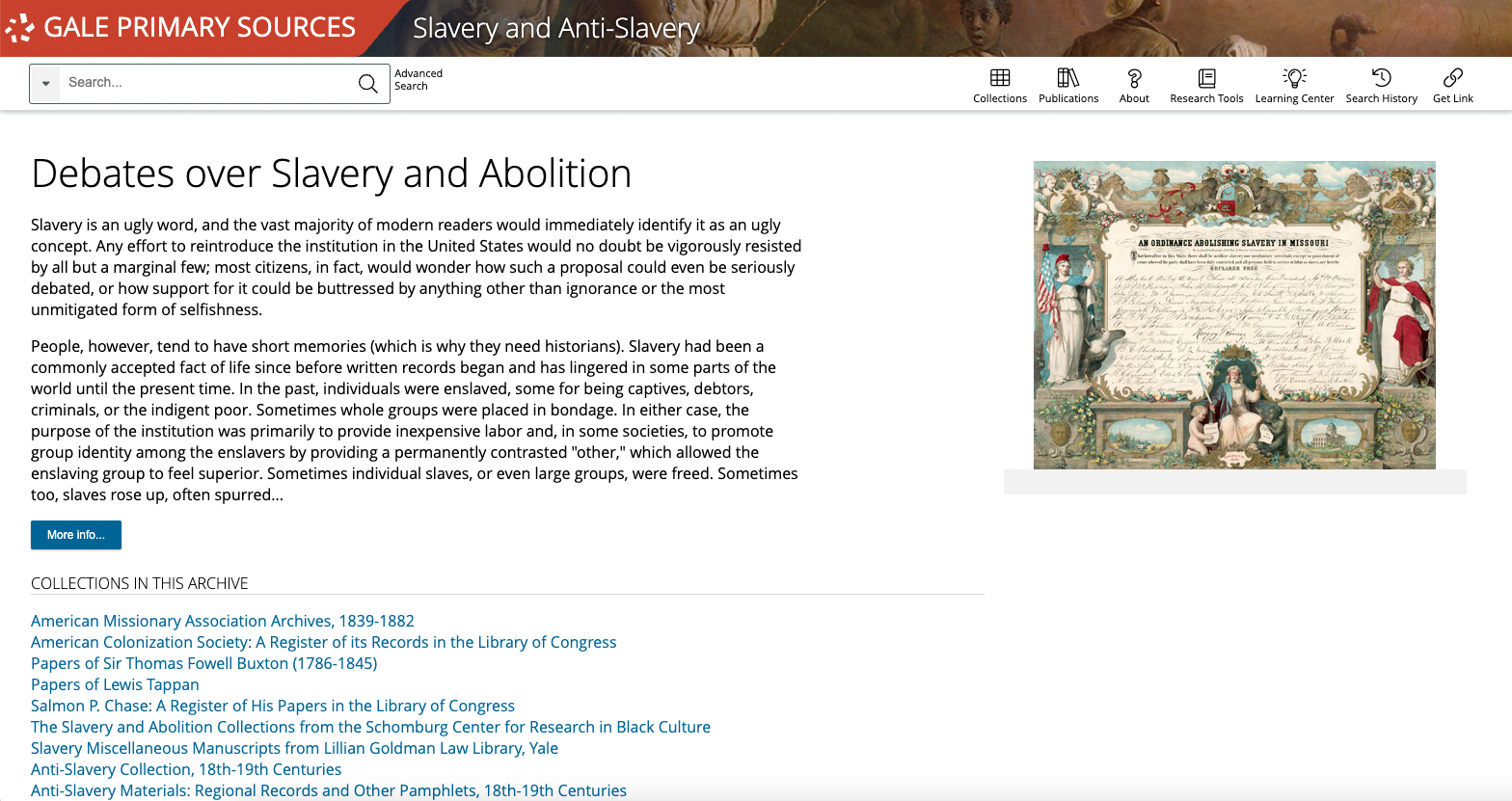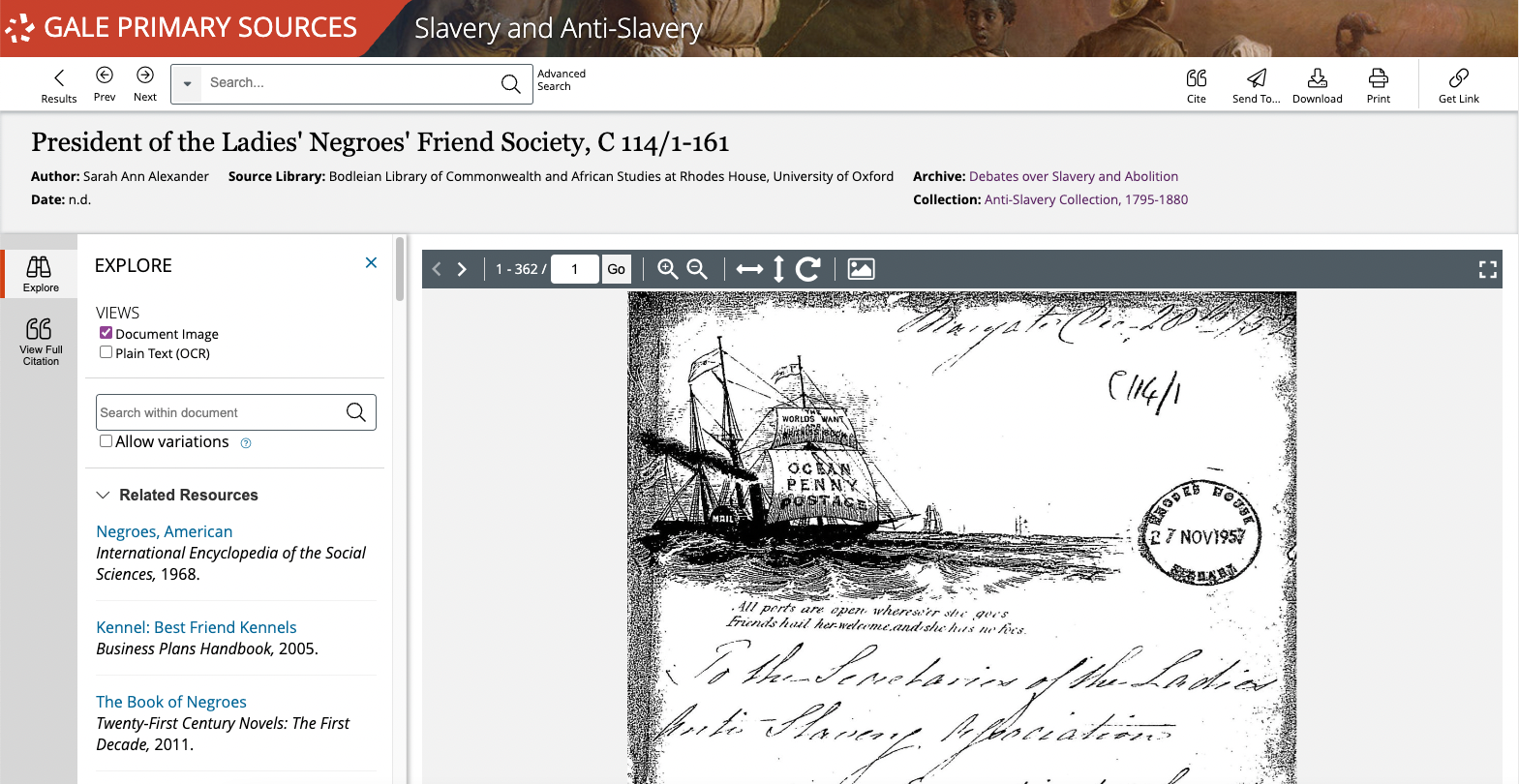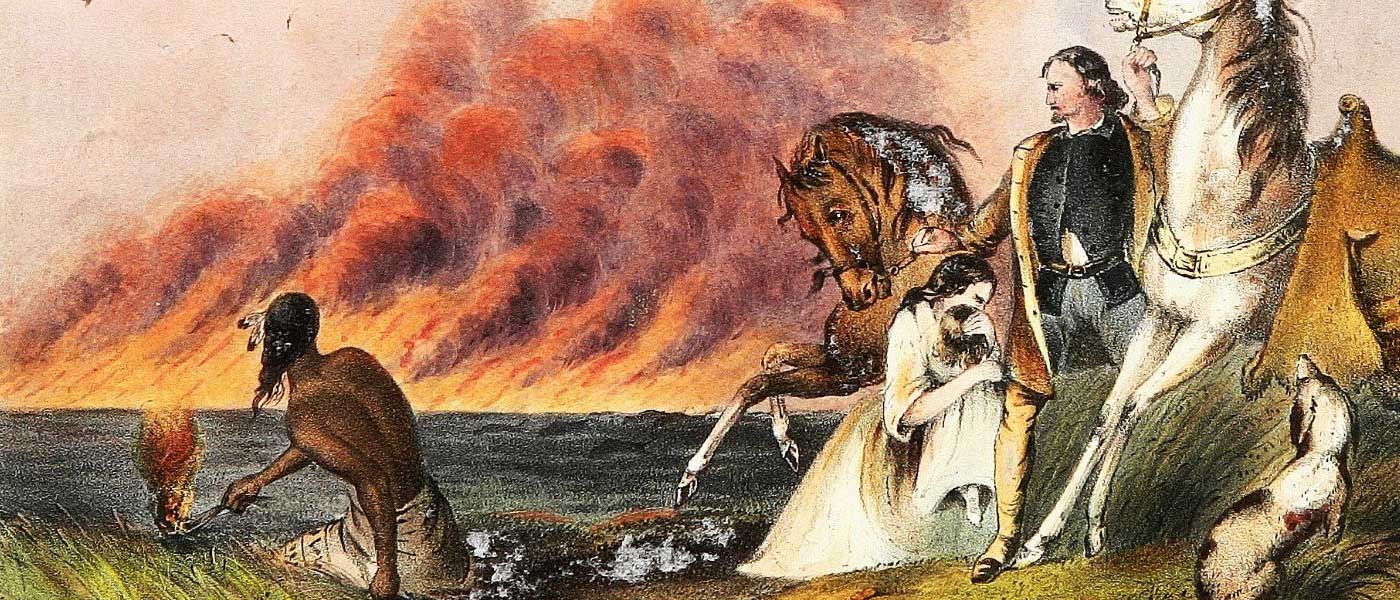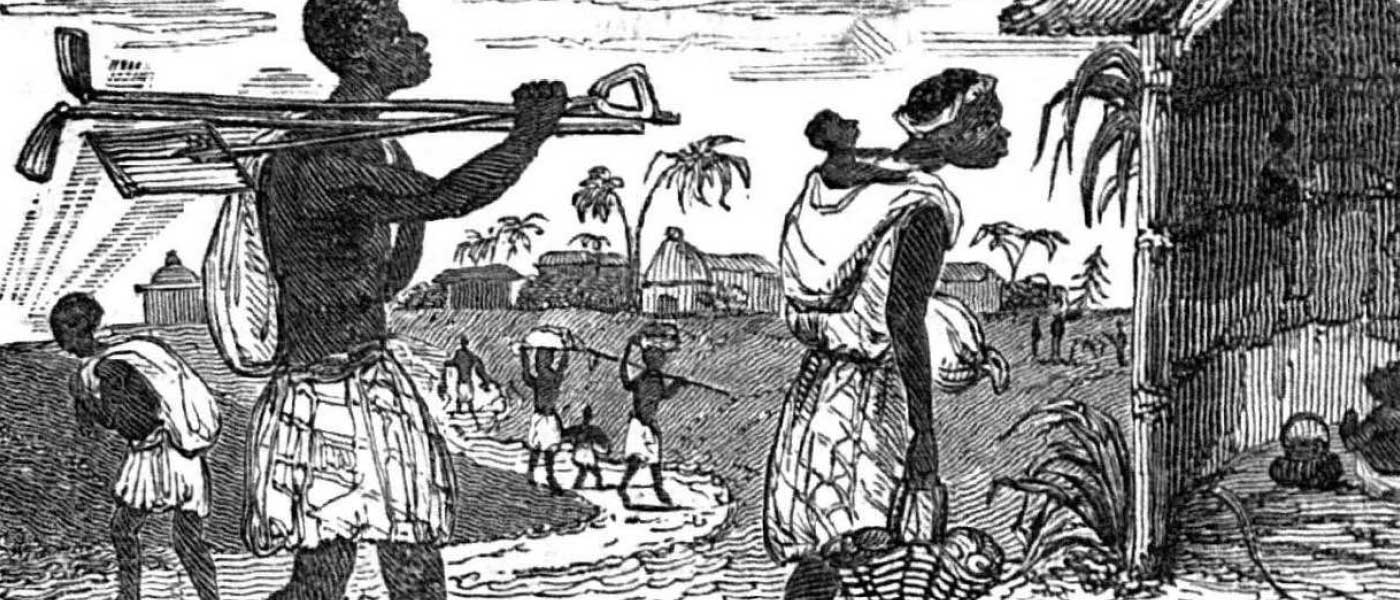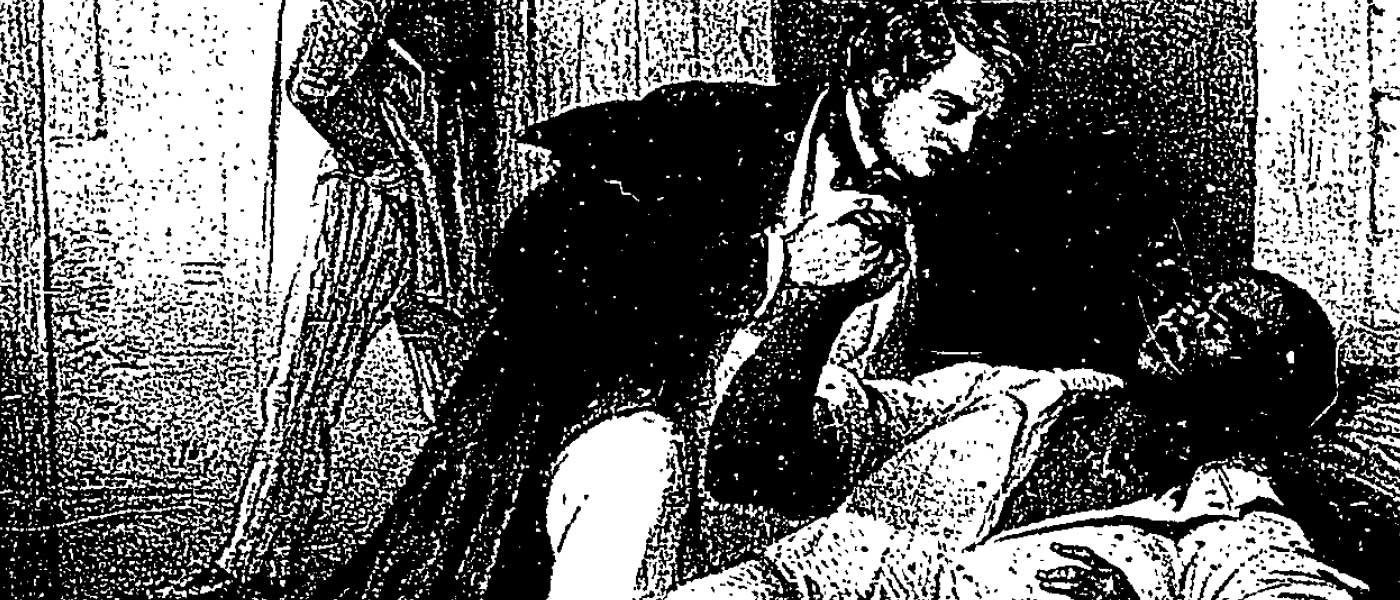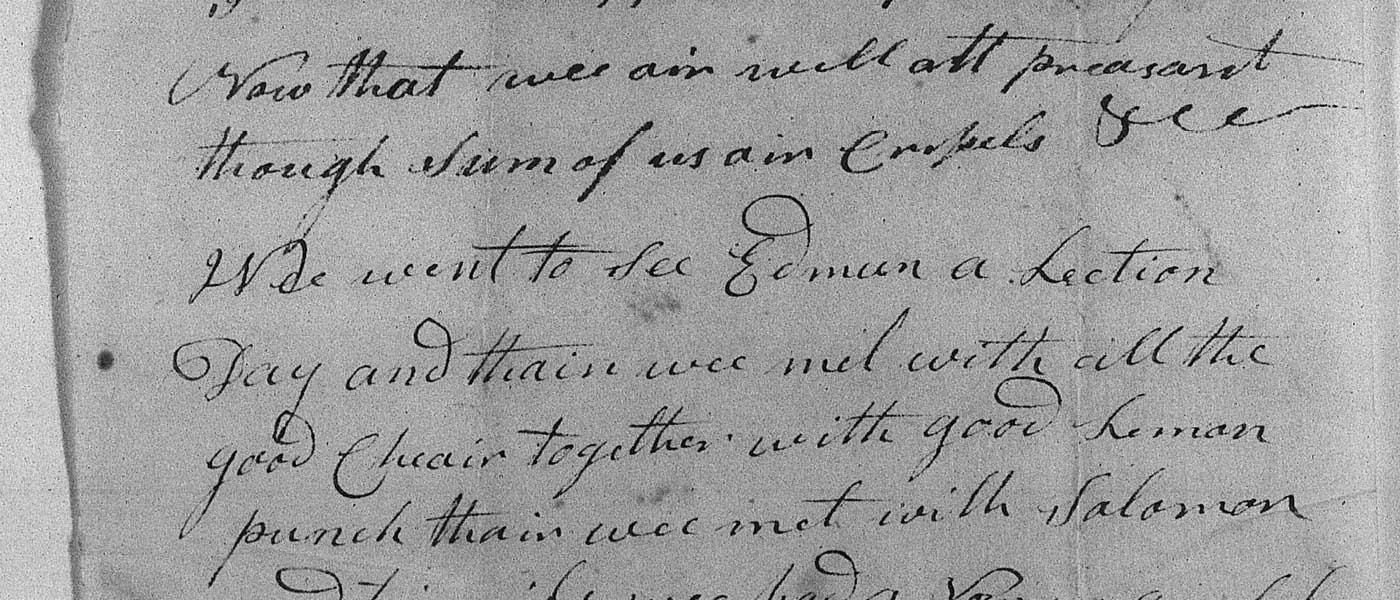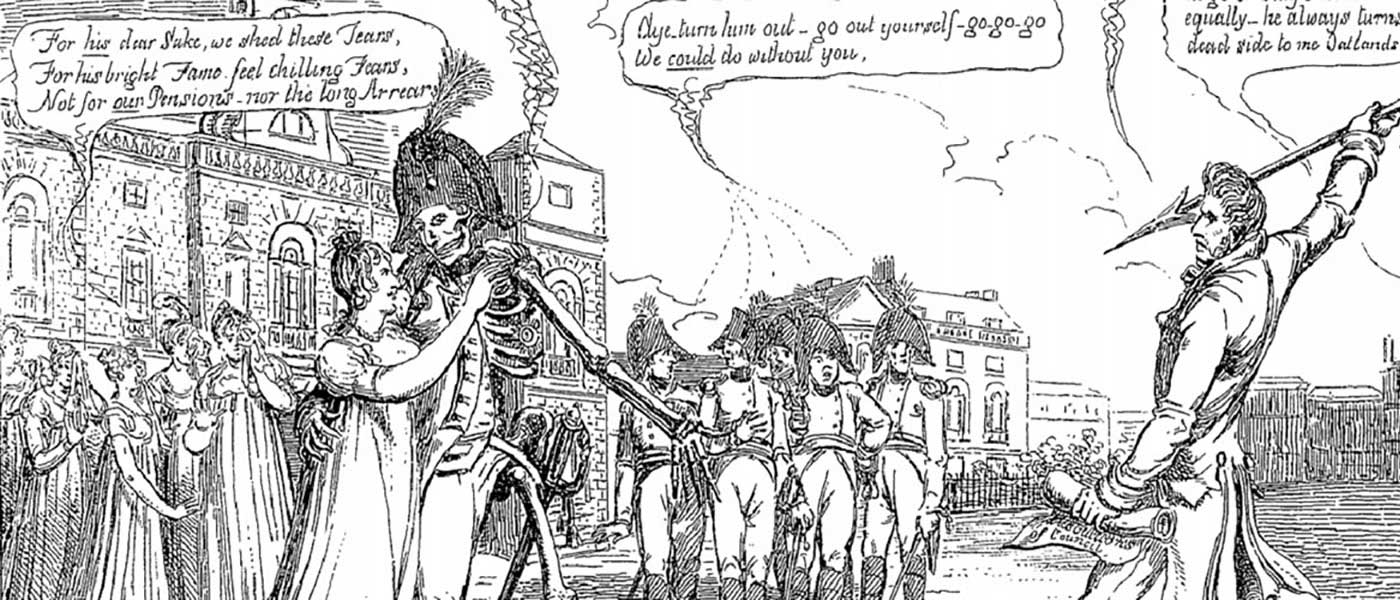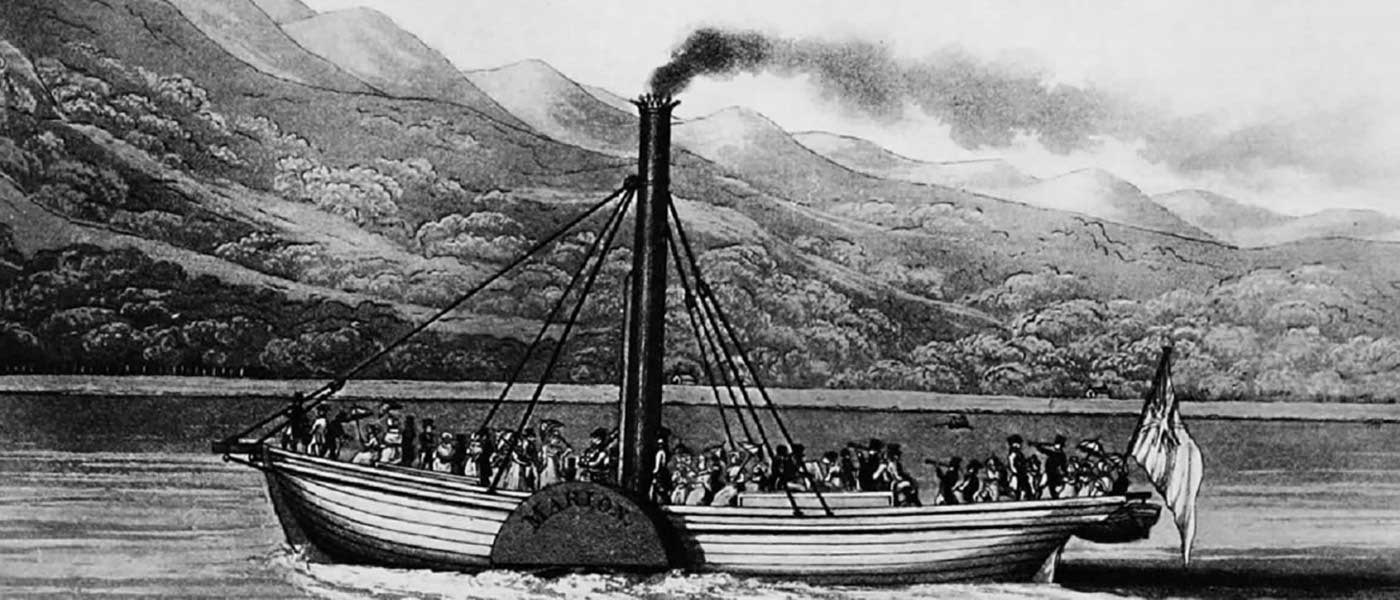Enhance the study of abolitionism and slavery at your institution with a rich panoply of perspectives from advocates and opponents.
Part I: Debates over Slavery and Abolition contains 7,277 books and pamphlets, more than eighty newspaper and periodical titles, and eighteen major manuscript collections. Varied sources -- from well-known journals to private papers -- open up endless possibilities for academic researchers, historians, undergraduate and graduate students, faculty, and others studying the history of slavery. The content is carefully reviewed by a renowned board of scholars and thematically arranged. It covers a wide spectrum of interests related to the history of slavery: legal issues; the Caribbean; children and women under slavery; modes of resistance; and much more, from 1490 to 1896.
Part I: Debates over Slavery and Abolition has a US focus, yet strongly supports comparative research with the inclusion of resources from Africa, Europe, Latin America, and the Caribbean. Developed under the guidance of a board of scholars, it explores various facets of the controversy, with a focus on economic, gender, legal, religious and government issues. Unlike other resources that include highly edited selections of historical archives, Slavery and Anti-Slavery: A Transnational Archive keeps complete collections intact. As a result, the archive gives users a total research experience, providing the rich context in which slavery took place and allows for research and teaching opportunities beyond the study of slavery, including many topics in American, world, European, African, Latin American, economic, legal, and religion history.
Part I presents more than twenty historical collections in their entirety, including:
- The American Missionary Association Archives, 1839-1882
- The American Colonization Society Papers
- Papers of British abolitionist Sir Thomas Foxwell-Buxton
- Papers of American abolitionist Lewis Tappan
- Salmon P. Chase Papers
- Anti-Slavery Collection from Oberlin College
- Papers of the Christian Faith Society
- Abolitionist periodicals
- Records of the Office of the Secretary of the Interior Relating to the Suppression of the African Slave Trade and Negro Colonization, 1854-1872
- Records of the United States District Court for the District of Columbia Relating to Slaves, 1851-1963

Gale Primary Sources | Gale Review Blog
Archives Explored | Sign up for Updates

FEATURED REVIEW
“This database is an unparalleled resource for expert historians and undergraduate students alike. What's particularly exciting is that the current iteration is merely the beginning of an ongoing endeavor. Simply put, nothing is comparable to SAS. This project is unequivocally the most important undertaking related to the study of slavery. Essential. Upper-level undergraduates through faculty/researchers.”
- Choice
Look Inside
Additional Details
subjects covered
- Black Studies
- African Studies
- African-American Studies
- European Studies
- Latina / Latin America / Caribbean Studies
- U.S. History
Platform Features & Tools
Term Frequency
Researchers can see the frequency of search terms within sets of content to begin identifying central themes and assessing how individuals, events, and ideas interact and develop over time.
Topic Finder
By grouping commonly occurring themes, this tool reveals hidden connections within search terms—helping to shape research by integrating diverse content with relevant information.
Cross-Search Capability
Search across the content of complementary primary source products in one intuitive environment, enabling innovative new research connections.
Reviews & Testimonials
“This comprehensive digital collection is not only valuable, it is a treasure trove.”
“Traditionally, historians have sought out and poured over archival evidence wherever it could be found: libraries, courthouses, government buildings, musty attics. It can be -- and often must be -- a painstaking and time-consuming process. That painstaking process may not be necessary anymore. . . . Thanks to Gale’s Slavery and Anti-Slavery Archive, the first of four massive transnational digital archives on slavery, the information we need to research, write, teach, understand, and explain slavery . . . is readily available, and in a comprehensive, usable format.”
“This is the first of an eventual four part resource and a stunning example of how the Internet continues to redefine primary source access. . . . This is a highly recommended resource, and even smaller academic libraries that would usually bypass any consideration of primary source material should think long and hard about this one. Slavery is a multidisciplinary topic that appears time and again in varying ways. Whether one is researching documents on the Dred Scott decision or reading the emotional story of a personal slave narrative, this collection will have broader appeal than the typical primary source collection.”


